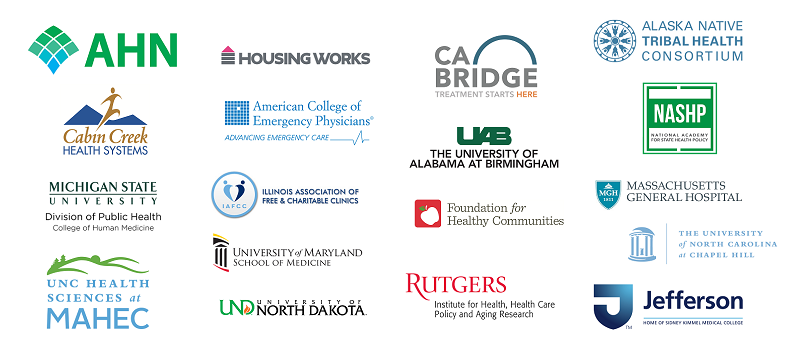News & Updates — FORE Announcements
$10.1 Million in Grants to Improve Access to Opioid Use Disorder Treatment
March 12, 2020Today, FORE announced its first round of grant awards. We are proud to support 19 organizations that are working to increase access to opioid use disorder treatment in diverse and innovative ways. They demonstrate an array of models of working on the frontlines to end the opioid crisis.
These 19 projects were selected from a highly competitive field of more than 400 applicants; the selection process was informed by reviews from 50 independent experts. Our grantees will be working to expand access to treatment for vulnerable populations, including pregnant women, the homeless, and those just released from jails or prisons who are at high risk of relapse and overdose deaths. From remote areas of Alaska and Alabama to New Hampshire and New York City, they are working to engage and educate health care providers and fielding peer support workers and doulas to forge relationships that lead to lasting recovery.

Others are helping to develop and spread new care models that leverage telemedicine to reach patients in remote, underserved areas or build capacity in emergency departments, which can play a vital role in initiating treatment and routing patients to ongoing care. Still others are doing the important work of identifying what’s most effective and why, generating insights for policymakers and payers.
As a group they are promoting access to opioid use disorder treatment across the U.S., with a particular focus on urban, rural, minority, tribal, and low-income communities that lack resources to meet patients and families’ needs. Visit Our Grantees page to learn more about these organizations and their plans for spreading innovative, evidence-based solutions to the crisis.
As we support our grantees in achieving their goals, we will be looking to fund additional work as part of a comprehensive approach that includes educating professionals about opioid use disorder prevention and treatment; developing sustainable payment approaches; informing state and federal policies to ensure access to care; and raising public awareness of effective strategies to end the crisis.